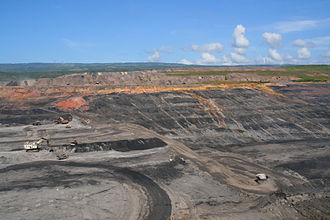Paleocene
Paleocene is a geological epoch that lasted from about 66 million to 56 million years ago. It is the first epoch of the Paleogene Period within the Cenozoic Era, following the mass extinction event at the end of the Cretaceous period, known as the K-Pg boundary. This epoch is crucial for understanding the recovery and evolution of life on Earth after one of the most significant extinction events in the planet's history.
Overview
The Paleocene is marked by a world recovering from the catastrophic event that led to the extinction of the dinosaurs (excluding birds), and many other species. During this time, Earth's climates were generally warm, and there was no evidence of glaciation. The warm temperatures encouraged the spread of tropical and subtropical forests to higher latitudes, and the planet saw the development of new ecosystems.
Flora and Fauna
The absence of large dinosaurs opened ecological niches, leading to the adaptive radiation of mammals. Mammals began to grow larger and diversify into many new forms. Notable mammalian groups that emerged or diversified during the Paleocene include the primates, carnivores, and the early ancestors of ungulates (hoofed animals).
The Paleocene also saw significant developments in plant life. With the warm and humid climate, angiosperms (flowering plants) continued to dominate and diversify, forming dense forests in many areas. These forests supported a diverse array of animal life and laid the groundwork for modern ecosystems.
Geology
The Paleocene is characterized by significant geological activity, including the continued breakup of the supercontinent Pangaea. This tectonic activity led to the formation of the Atlantic Ocean and contributed to the diverse range of habitats found during this epoch.
Climate
The climate of the Paleocene was generally warm and humid, with little evidence of ice at the poles. This greenhouse climate supported extensive forests, including at high latitudes. However, the Paleocene also experienced a significant temporary climate event known as the Paleocene-Eocene Thermal Maximum (PETM) near its end, around 55.5 million years ago. During the PETM, global temperatures increased dramatically for a short period, causing significant changes in the distribution of plant and animal species.
Impact on Evolution
The Paleocene epoch was a critical period for the evolution of life on Earth. The recovery from the K-Pg mass extinction provided evolutionary opportunities for many groups, particularly mammals, which would go on to dominate many ecosystems in the subsequent Eocene Epoch. The diversification of plants and animals during this time laid the foundation for modern life forms.
Conclusion
The Paleocene represents a period of recovery and significant evolutionary change following one of Earth's most catastrophic mass extinctions. It set the stage for the rise of mammals and the establishment of ecosystems that would continue to evolve into the present day.
Transform your life with W8MD's budget GLP-1 injections from $125.
W8MD offers a medical weight loss program to lose weight in Philadelphia. Our physician-supervised medical weight loss provides:
- Most insurances accepted or discounted self-pay rates. We will obtain insurance prior authorizations if needed.
- Generic GLP1 weight loss injections from $125 for the starting dose.
- Also offer prescription weight loss medications including Phentermine, Qsymia, Diethylpropion, Contrave etc.
NYC weight loss doctor appointments
Start your NYC weight loss journey today at our NYC medical weight loss and Philadelphia medical weight loss clinics.
- Call 718-946-5500 to lose weight in NYC or for medical weight loss in Philadelphia 215-676-2334.
- Tags:NYC medical weight loss, Philadelphia lose weight Zepbound NYC, Budget GLP1 weight loss injections, Wegovy Philadelphia, Wegovy NYC, Philadelphia medical weight loss, Brookly weight loss and Wegovy NYC
|
WikiMD's Wellness Encyclopedia |
| Let Food Be Thy Medicine Medicine Thy Food - Hippocrates |
Medical Disclaimer: WikiMD is not a substitute for professional medical advice. The information on WikiMD is provided as an information resource only, may be incorrect, outdated or misleading, and is not to be used or relied on for any diagnostic or treatment purposes. Please consult your health care provider before making any healthcare decisions or for guidance about a specific medical condition. WikiMD expressly disclaims responsibility, and shall have no liability, for any damages, loss, injury, or liability whatsoever suffered as a result of your reliance on the information contained in this site. By visiting this site you agree to the foregoing terms and conditions, which may from time to time be changed or supplemented by WikiMD. If you do not agree to the foregoing terms and conditions, you should not enter or use this site. See full disclaimer.
Credits:Most images are courtesy of Wikimedia commons, and templates, categories Wikipedia, licensed under CC BY SA or similar.
Contributors: Prab R. Tumpati, MD






